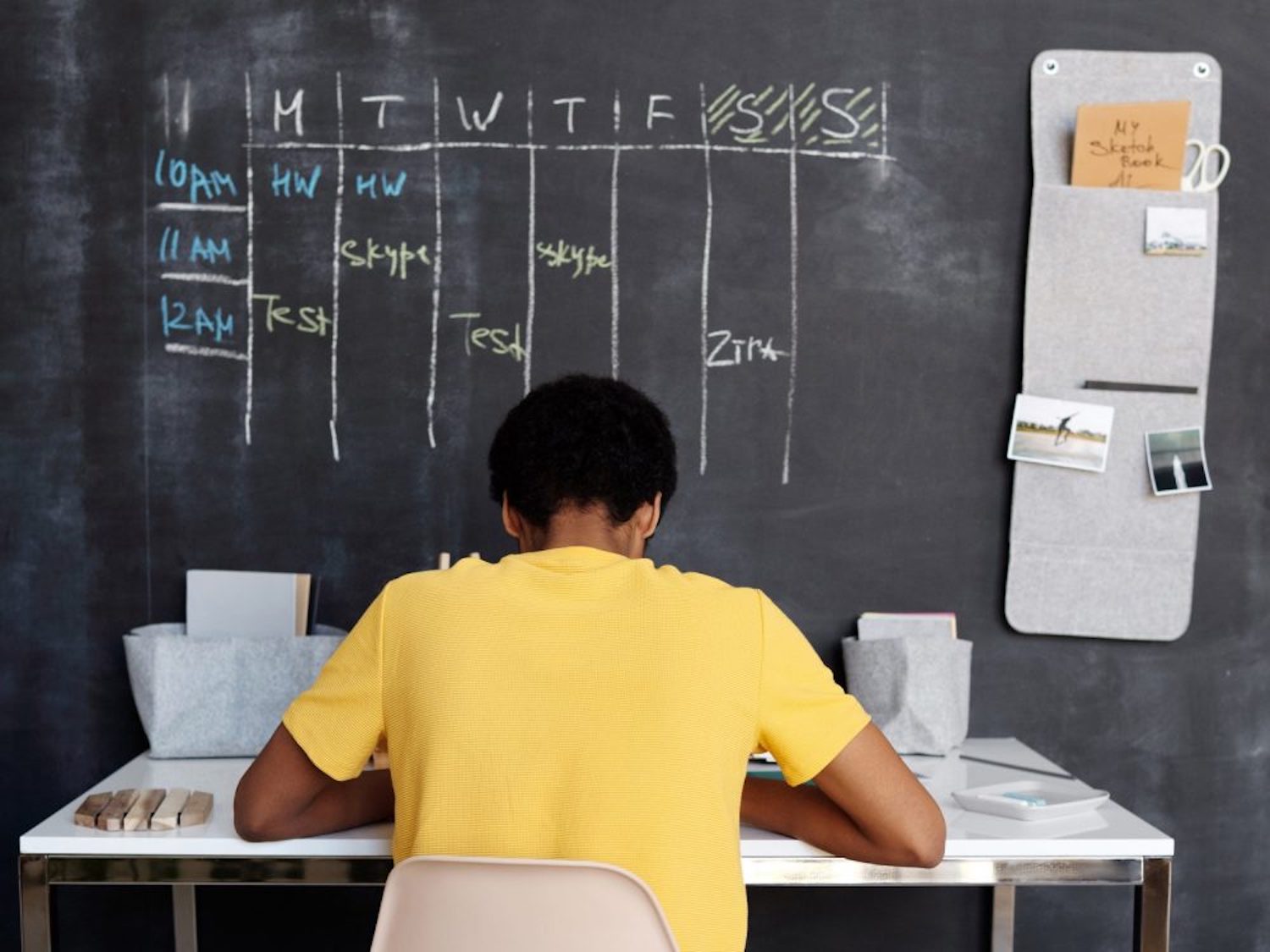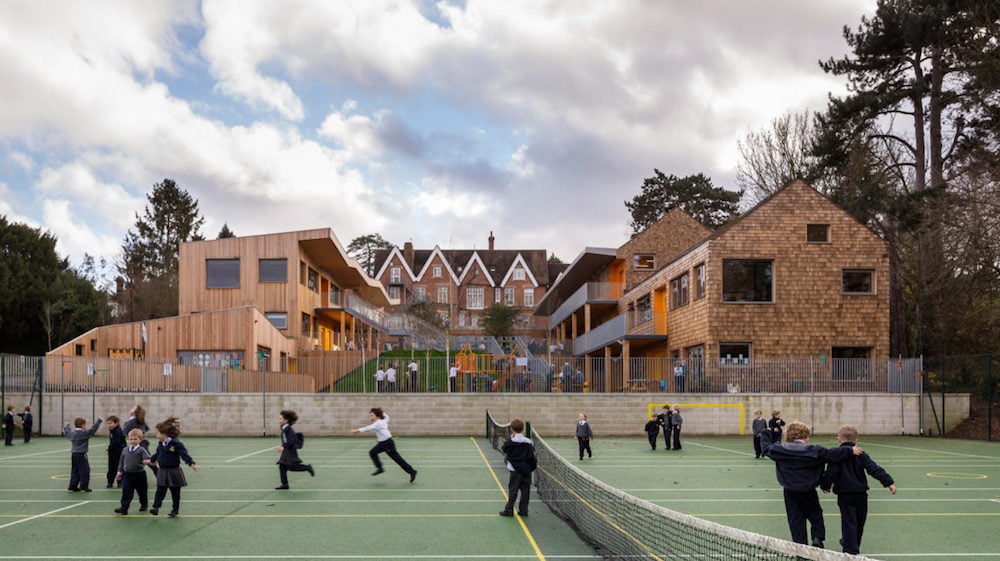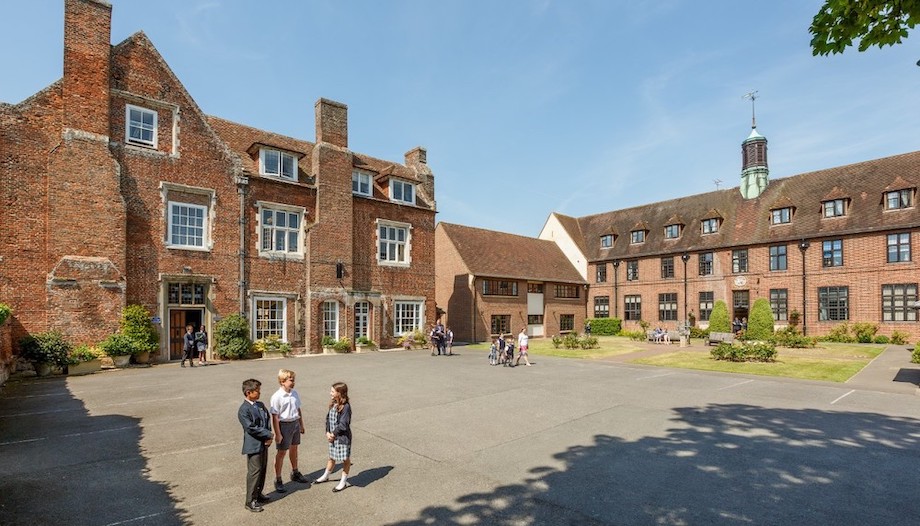Exam season? Relaaaax. Here’s your survival toolkit
Is your child or teen in the middle of summer exams? Want to ensure the best chance of success? Then read these A* tips from the heads of some of Kent’s top schools. Result!

Eek, GCSEs and A-Levels are in full swing and the house is filled with groans from grumpy teens procrastinating over their revision. It can be difficult as a parent to find the balance between supporting your child and making sure they’re on top of their revision, especially as exams can really add to their mental load (with hormones, relationships, and social lives to add to the mix).

But from junior to senior school, exams are an essential part of the school system and are ultimately crucial in helping to shape their future, whether as a stepping stone to the next school, higher education or a means to kick starting their career. We asked the experts – from some of Kent’s top schools to share their tips on how to minimise stress and make the most of revision time, so your child can achieve the best possible results.
SENIOR SCHOOLS
Scott Milne, Deputy Head (Academic) at Radnor House School, Sevenoaks says:
FACE THEM TOGETHER AS A FAMILY
‘Public exam season can also take its toll on parents and guardians who are unsure how to support children through this busy period where emotions can run high and normal routines disrupted. Encourage your teenager to include non-exam related activities (like exercise and socialising) in their exam timetable and then display that plan in a prominent place in the house. This will help remove any conflict around whether or not they ought to be working at a particular time.
Establish a regular study base in the house, away from all distractions. Some students also find it helpful to work in the local library or at their school. Keep morale high. Favourite dinners after big exams and the odd special treat will help greatly, but a listening ear, sympathy, and encouragement can prove even more valuable, even if your teenager doesn’t show their appreciation at the time.’

Graham Letley, Deputy Head Academic at Kent College, Canterbury, says:
USE YOUR STUDY LEAVE EFFECTIVELY
‘As students in schools have either already started their final examinations or are at least beginning examination leave, it is important to stress how this period of time is still one where close contact with school and teachers can really help. Exam leave does not mean working on your own, rather use the flexibility to arrange 1:1 support sessions concerning work and indeed to help destress and manage any anxiety. A good routine of daily work and breaks is the key from this point onwards with a variety of tasks, rest breaks, food and sleep planned in.
Students at KC are encouraged to still participate in our array of co-curricular clubs after school during exam leave as a way to relax and switch off from revision. For boarders there are also activities in the evenings or on Saturday morning when they can join the running club with the Head, have a go at archery, go dog walking with the Chaplain and have a chat or help out with our Young Farmers group at our working Farm.’

Katrina Handford, Head at Kent College, Pembury, says:
KEEP LEARNING SHORT, SWEET & ACTIVE
‘Spaced Learning – short sharp bursts of revision on a regular basis, repeating content to refresh and embed knowledge – is known to move knowledge from the short-term memory to the long-term memory. Keep learning active too – simply re-reading and highlighting notes isn’t a very effective way to memorise facts. Instead try activities that stretch and manipulate the way the brain processes the information, so it has to process the facts.
For example, transforming a page of notes to a diagram or a list of bullet points to a five summary words. And finally, do some Practice Questions – the best way to go into the exam feeling confident is to practise. Completing as many past papers as possible and acting upon feedback from teachers upon marking will help to find and fill any gaps.’

Dr Patrick Drumm, Director of Studies at Cobham Hall, Cobham says:
MAINTAIN SLEEP ROUTINES AT ALL TIMES
‘Keeping up with hobbies or music practice is a really good way to unwind and helps to create a healthy balance with studying. Also, create a regular bedtime routine and stick to it.
Despite the temptation to do otherwise, developing good sleeping habits is so important during the teenage years. Encourage your child to maintain a sensible and familiar sleep routine on all days (not just weekdays). Late night cramming does not work! A good night’s sleep will.’
PREP SCHOOLS
Helen McClure, Headmistress at Solefield School, Sevenoaks says:
TEST YOURSELF IN EXAM CONDITIONS
‘The emphasis, for us, is on helping pupils to prepare for their future lives, not just to pass exams. With a strong cognitive skills philosophy running throughout the school, pupils learn to take ownership of their learning, think critically and be curious.
Create a revision timetable (and stick to it!) including scheduling in regular breaks for lunch and tea and try to take 30 minutes every afternoon to go for a walk in the fresh air. Put what you’ve learnt into practice – test yourself by doing what you’ll have to do in the exam. If you discover the gaps in your knowledge yourself and then take the time to fill them, chances are that knowledge won’t escape you again – and you’ll be confident to use it again in future.’

Alex Holmes, Deputy Headteacher Academic at Somerhill School, Tonbridge says:
FOCUS ON READING AND COMPREHENSION SKILLS
‘Whether it’s getting ready for the 11+, the ISEB Pre-Test or the end of year exams in Year 8, little and often is always the best policy – especially if we’re focusing on reducing anxiety. Reading is the core skill, and a high level of comprehension is proven to make a significant difference to exam performance, therefore read, read, read and read for purpose and meaning.
To reduce stress, we encourage pupils to focus on the long-term process of learning and when it comes to revision time, we advocate purposeful practice. What can you do well? Where are the gaps in your knowledge? Which areas require a deep dive? Chunking is also a very time efficient way of committing large amounts of information to memory; flash cards and mind maps are also encouraged at Somerhill. When done well, collaboration is a powerful learning process that can make revision a less daunting activity, therefore, appropriately selected ‘study buddies’ can have a profound effect.’

Emma Károlyi, Head at Junior King’s, Canterbury says:
KEEP IT ALL IN PERSPECTIVE
‘Exams can put an enormous amount of pressure on pupils: both children and parents can invest a lot of emotional and physical energy in them, possibly with the high stakes of a secondary school place in mind, a scholarship or other award, or just a sense of competition with their peers.
My advice is to keep everything in proportion: I like to remind our pupils that their identity is more important than their school results, that education is for life, and there is much more to this journey than just passing exams. Planning ahead with revision, and pacing themselves – little and often, maintaining good mental health, through a balance of exercise and other activities and getting enough sleep are sure ways to achieve success. As a result, JKS pupils do exceptionally well, and we are very proud of all that they achieve.’
Louise Lawrance, Headmistress at The Granville, Sevenoaks says:
BE KIND TO YOURSELF
For us, it’s not about surviving exam season but rather thriving in it. Forward planning and preparation is key – don’t leave things until the last minute.
Take care of yourself – eat well, sleep well and look after your mental health by sharing your worries, keeping active and breathing. Remember that you’ve worked hard, and you will be so proud of yourself when it is all over.
You may also like

















